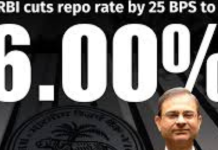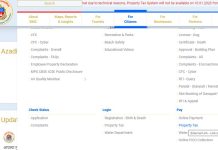Failing to repay your home loan default can have long-term consequences that not only damage your credit score but also make future borrowing difficult. When you take a home loan, you’re expected to repay both the principal and interest in the form of Equated Monthly Instalments (EMIs). As long as you make timely payments, your relationship with the bank remains smooth. However, financial setbacks such as job loss or medical emergencies can lead to missed payments, making it important to understand the consequences of defaulting on your home loan and how to manage the situation effectively.
Legal Consequences of Missing Home Loan Payments
If you miss up to three EMIs, the bank may take legal action to recover the loan. Initially, banks are lenient with first-time defaults and may only send reminders. However, after three consecutive missed payments, the bank will send a legal notice and initiate recovery proceedings, potentially leading to the seizure of your property. The legal process includes enforcement of the mortgage, and under acts like the Recovery of Debts Due to Banks and Financial Institutions Act (1993) or the SARFAESI Act, the bank can auction your property to recover the outstanding amount.
When Your Home Becomes a Non-Performing Asset (NPA)
If you default on three consecutive loan repayments, the bank may declare your home a Non-Performing Asset (NPA). NPAs are properties that do not generate income for the lender, prompting them to take aggressive recovery actions such as legal proceedings or auctioning the property to recover the debt.
Higher EMI Payments Due to Missed Repayments
Missing an EMI will result in late payment fees, typically 2-3% of the missed amount. For instance, if your EMI is ₹5,000 and you fail to pay, a late fee of ₹150 (3% of ₹5,000) will be charged. Additionally, your interest rate may increase, making future EMIs even more expensive. A minor increase of 0.25% in interest could raise your EMI from ₹5,000 to ₹5,060, adding to the financial burden.

Property Seizure and Auction
If you continue to default home loan , after receiving a legal notice, the bank will provide you with a final notice that includes the estimated value of your property. You will have one more month to settle the debt, after which the bank may auction the property. However, you can negotiate with the bank during this six-month period to reach a settlement or clear the outstanding payments before the auction date.
Impact on Your Credit Score

Missing home loan repayments has a direct impact on your CIBIL/credit score. Banks report missed payments to credit agencies, which then lower your credit score. A poor credit score makes it difficult to secure loans in the future, as lenders assess your financial history before approving loan applications. Without a favorable credit score, you may face higher interest rates or outright denial of credit.
Difficulty in Securing Future Loans
Defaulting on your home loan not only affects your current financial standing but also makes it challenging to obtain loans in the future. Lenders view defaulters as high-risk borrowers, which can result in higher interest rates or even loan denial. This could limit your ability to get a mortgage, car loan, or even a credit card. Even if you’re approved for future loans, the requirements may be stricter, including the need for additional documentation or collateral.
Also read: SBI Home Loans Eligibility and Interest Rates in May 2024
How to Handle Home Loan Defaults
If you’re facing financial difficulties and are unable to meet your loan repayments, here are a few steps you can take:
- Contact Your Bank: Open communication with your lender is crucial. Many banks offer restructuring options or temporary relief measures like an extension on your loan term.
- Utilize Moratoriums: In difficult times, such as the COVID-19 pandemic, the Reserve Bank of India has allowed for loan moratoriums that offer temporary relief from EMIs.
- Negotiate Terms: Work with your lender to negotiate lower EMIs or adjust the loan terms, allowing you to meet your payment obligations.
Defaulting on your home loan repayments can severely impact your financial health and creditworthiness. Missing even a single EMI can lead to a series of consequences, from legal actions to long-term credit damage. However, there are ways to manage the situation and avoid becoming a defaulter. This guide will help you understand the consequences of missed repayments and explore strategies to avoid defaulting on your home loan.
How to Avoid Being a Home Loan Repayment Defaulter
Here are actionable steps to help you avoid missing home loan repayments and protect your financial future:
1. Restructure Your Loan
If you’re facing financial difficulties, reach out to your bank and request a home loan restructuring. You can explain your financial challenges and propose a plan to get back on track. Loan restructuring may involve deferring EMIs or reducing monthly payments, though this typically extends your loan tenure. Additionally, you can negotiate a lower interest rate to reduce the outstanding amount.
2. Liquidate Other Investments
In times of financial crisis, consider liquidating assets such as bonds, shares, or mutual funds to meet your home loan obligations. You can also seek financial assistance from family or friends to repay the loan and avoid accruing higher interest on delayed payments. This strategy can help you prevent late fees and protect your credit score.
3. Contact Your Relationship Manager
Instead of avoiding communication, engage with your bank’s relationship manager to explore available options. Financial institutions often have tailored solutions to help borrowers in distress. By maintaining open communication, you can find the best option to suit your financial situation.
4. Consolidate Your Dues
Consolidating your outstanding dues, including home loan repayments, into a personal loan can provide relief. While personal loans often carry higher interest rates, a strong credit score can help you secure favorable terms. This approach allows you to clear multiple debts, including home loan EMIs, while preserving your credit score.
5. Dispose of the Property
As a last resort, consider selling your property to clear the home loan. However, since the property is collateral for the loan, you’ll need permission from the lender. Selling the property yourself can help you obtain a higher value than the bank’s estimated auction price. This strategy can help you pay off the loan and avoid further legal complications.
Also read: Bajaj Finance Home Loan: Eligibility, Interest Rates 2024
Your Rights as a Borrower When You Can’t Repay a Home Loan
If you’re unable to make home loan repayments, financial institutions must follow a specific legal process to recover their dues. Here are the rights you have during such proceedings:
1. Adequate Notice
As per banking regulations, lenders must provide adequate notice before initiating legal proceedings. If your home loan payments are overdue for more than 90 days, the bank will issue a 60-day notice to repay the outstanding amount. If you fail to make payments, they will issue an additional 30-day notice before taking further action.
2. Fair Valuation of Assets
Lenders are obligated to conduct a fair valuation of your property before initiating an auction. You will receive a notice detailing the property’s value, auction date, and time. If you believe the valuation is too low, you have the right to seek an independent valuation or find an alternative buyer.
3. Access to Surplus Auction Funds
In the event that your property is auctioned, the bank is required to return any surplus funds to you after recovering the loan amount. As a borrower, you can monitor the auction process to ensure transparency.
Understanding Home Loan Default and the Legal Process
A home loan default occurs when a borrower fails to repay the loan despite multiple notices. Since home loans are secured loans, the lender has the right to seize the collateral—in this case, your property. After three months of missed payments, the bank may declare the property a non-performing asset (NPA). The legal process to seize the property is initiated under the SARFAESI Act, which gives borrowers two additional months to repay the loan before the property is auctioned.
What Are Home Loan EMI Bounce Charges?
EMI bounce charges are penalties imposed by the bank when an EMI payment fails due to insufficient funds. Depending on the bank, the bounce charge ranges from ₹500 to ₹1,000. In addition to the penalty, you’ll need to pay the missed EMI amount along with interest in the subsequent month. This makes it crucial to maintain sufficient funds in your account to cover your monthly EMIs.
Final Thoughts: How to Handle Home Loan Repayment Defaults
If you find yourself unable to make your home loan payments, avoid panicking. Instead, follow these steps:
- Explore alternatives: Consider options like increasing the loan tenure, reducing the interest rate, or consolidating your debts.
- Communicate with your bank: Discuss your situation and work out a solution with your lender.
- Organize your documents: Keep all home loan-related documents and EMI payment receipts ready for discussions with the bank.
- Create a financial plan: Present a convincing strategy to demonstrate how you’ll manage future payments.
In some cases, banks may provide grace periods if you’ve maintained a good repayment history. Always aim to negotiate with your bank and find a mutually beneficial solution to avoid defaulting on your home loan.
Frequently Asked Questions:
If you miss a home loan EMI payment, the bank may charge a late fee and increase your interest rate, making future EMIs more expensive. Repeated missed payments can lead to legal action and property seizure.
Banks usually start legal action after three consecutive missed payments. They will issue a 60-day notice followed by a 30-day notice before proceeding with property seizure
Yes, you can request loan restructuring from your bank. This may involve deferring EMIs, extending the loan tenure, or reducing the EMI amount.
Yes, missing home loan repayments negatively impacts your credit score, making it difficult to secure future loans at favorable term
Suggested Articles:
Home loan From a Bank vs Housing Finance Company: Which is Best Option
Bajaj Finance Home Loan: Eligibility, Interest Rates 2024
SBI Home Loans Eligibility and Interest Rates in May 2024



































